🎗️Lonny's War Update- October 643, 2023 - July 10, 2025 🎗️
🎗️Day 643 that 50 of our hostages are still in Hamas captivity🎗️
US won’t let Israel renew war post-truce, but doesn’t want demand in deal to keep Israel on board, Hamas at bay — sources
WASHINGTON — While the US plans to leave a window in the text of the Gaza truce that would technically enable Israel to resume the war at the conclusion of the 60-day ceasefire under discussion, the Trump administration has told mediators that it does not intend to allow Jerusalem to do so, an Arab diplomat and a source familiar with the matter tell The Times of Israel.
Despite opposing an Israeli resumption of the war, the US does not want that possibility ruled out in the text of the ceasefire proposal in order to hold Hamas’s feet to the fire and make sure that they negotiate in good faith, the two sources say.
Moreover, explicitly instituting a permanent ceasefire in the text of the proposal would lead to the collapse of Prime Minister Benjamin Netanyahu’s government, the source familiar with the negotiations says, indicating that the mediators are trying to avoid such a scenario in order to keep the Israeli premier on board.
For his part, Netanyahu has pledged to “finish the job” against Hamas, indicating that he would seek to resume the war after the 60-day truce. He says he is prepared to end the war if Hamas gives up its weapons and its leaders go into exile — conditions that the group has long rejected.
The prime minister has also conditioned the end of the war on the implementation of US President Donald Trump’s controversial plan to take over Gaza and encourage the mass migration of its Palestinians.
Trump has spoken less about the plan after introducing it in February, sparking widespread pushback from the international community. But Netanyahu and other Israeli leaders have embraced the “voluntary migration” idea, which critics have said is a euphemism for the ethnic cleansing of Gaza, given that the premier has reportedly told lawmakers that Israel is working to destroy every building in the Strip so Palestinians have nowhere to go after the war but outside of the enclave. link. Everyone knows that Netanyahu is a liar and promises the Americans one thing but has very different intentions. The entire reason that Netanyahu invented the phased releases of hostages is so he can breach the agreement at any time and go back to war. He will only adhere to an agreement if it meets his politically driven time table to enable him to call for early elections to be held no earlier than the first quarter of 2026. That is the strongest reason that Netanyahu will never agree to end the war in the immediate future and release all of the hostages at once. It is definitely what most Israelis want but that doesn't mean a thing to Netanyahu. He political survival is the only factor that will go into his decision making.
The Hamas negotiators in Qatar have told the Qataris that they don't believe they will be able for finalize any agreement because the 'junior' Israeli delegation doesn't have the mandate from Netanyahu to close a deal that will include ending the war with American guarantees. This isn't a new situation. At no time that an Israeli delegation was sent to negotiate, did they have a mandate from Netanyahu to make a deal that would bring all the hostages home.
Israel hands mediators in Doha new maps depicting partial IDF withdrawal after US pressure — sourcesWASHINGTON — Israel has submitted a new set of maps to mediators in Doha depicting the partial withdrawal of IDF troops during the 60-day truce under discussion following pressure from the US to limit Israeli presence in the Strip, an Arab diplomat and a source familiar with the matter tells The Times of Israel.
The previous partial withdrawal from Gaza had been rejected by Hamas, and the issue has become the main sticking point in the negotiations, the sources say.
Israel has insisted that it remain in the Morag Corridor in southern Gaza, near where it says it plans to create a “humanitarian city” into which the Strip’s entire population will be herded and prevented from leaving once vetted.
The sources didn’t say whether Israel has now dropped the demand.
After meetings at White House, hostage families say Trump administration committed to returning all captives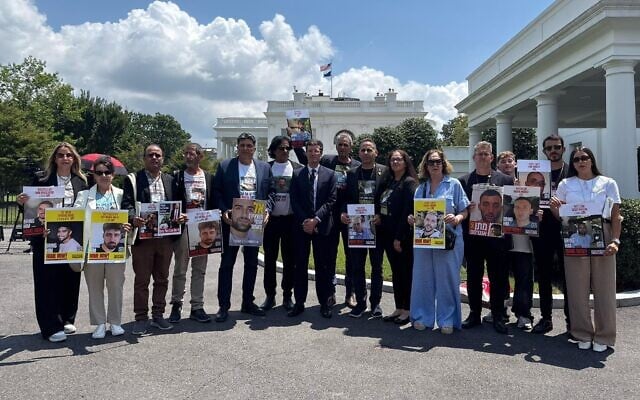
Families of hostages held in Gaza have wrapped up a round of meetings with Trump administration officials at the White House, the Hostages and Missing Families Forum says in a statement.“We heard for an additional time about the Trump administration’s commitment to returning all the hostages. They won’t stop until all 50 hostages return home. These moments are critical, and we trust the Trump administration to bring everyone with a complete agreement,” the statement reads.
Abu Mazen demands to join the negotiations on the hostage deal and ceasefire in Gaza
The Palestinian Authority signaled to the United States that it is not possible to discuss the "day after" without it • The Chairman of the Authority has not received a response from the Americans until this moment, but it is possible that they will try to include him during the 60 days, in which they will discuss ending the war and the future of the Strip
The government is trying to ignore the Palestinian Authority in the negotiations for a hostage deal and a ceasefire in Gaza, but the Chairman of the Authority, Abu Mazen, signaled to the Americans, with the support of Saudi Arabia, that he demands to be a part. Abu Mazen requested to include the Authority in the negotiations at the end of the first phase and during the 60 days of the ceasefire, if it materializes.
According to Abu Mazen’s approach, it is not possible to discuss long-term security arrangements in Gaza without the Authority, which is supposed to take the keys or at least hold part of the Strip, being at the table. The Chairman of the Authority has not received a response from the Americans until this moment.
According to assessments, the Americans are expected to respond to Abu Mazen that they will try to include him and the Palestinian Authority during the 60-day phase. At this stage, if and when we reach it, they will discuss ending the war and the future of the Strip. link This is what should happen. The PA or a technocratic body aligned with the PA must be the alternate governing body in Gaza, which would be tasked with taking over all government activities in Gaza, organize the rebuilding of Gaza, and getting rid of Hamas. Netanyahu has dedicated his political life in making sure there is no one to talk to on the Palestinian side so that he could continue with his false narratives and refusals to consider a Palestinian State next to Israel with full normalization and peace. That has been the basis for his support and funding of Hamas for all the years together with the weakening of the PA. The man who brought us October 7 through his actions and inactions wants us to forever live by the sword.
- 'A cruel, endless reality show': Hostage families cling to hope amid Gaza ceasefire talks
Brothers of hostages, Gal Gilboa Dalal and Liran Berman, voice urgent pleas for comprehensive deal that will bring back all captives in one go, stressing emotional toll and relentless uncertainty
On his birthday earlier this week, Gal Gilboa Dalal did not wish for gifts but for one thing: the return of his brother Guy, held hostage in Gaza. “It’s my greatest wish,” he said, describing a reality of relentless anxiety and fleeting hope.“Our hearts have shattered so many times, and we can’t rebuild without Guy. The pressure is unbearable. No family knows if their loved one will return. We guess based on what’s released, but no one truly knows.” Despite the uncertainty, Gal closely follows every development.Gal Gilboa Dalal“The fact that Bibi [Benjamin Netanyahu's nickname] is there [in the U.S.], that a delegation is in Doha, that the world is engaged—it gives me more hope than any strike on Iran. We’re one people. We’ve lost soldiers, people have lost homes, and it’s crushing us. Our fight is to keep the hostages in focus until a solution is found.”Gal believes U.S. and Qatari mediation could lead to a deal to free the hostages and withdraw soldiers from Gaza. “I pray for a deal that brings everyone back. People must understand I’m not just talking about Guy and Eviatar. Every freed hostage joins the fight to bring back those still held. Guy and Eviatar won’t be themselves until everyone returns. This selection process is killing us, a cruel reality show that never ends.”While Gal remains in Israel, his parents are in Washington, consumed by a packed schedule of meetings. “We don’t talk much, but now is the time to push for a comprehensive deal. I hope that’s what happens. I don’t care about politics. I just want to see my brother."That’s all that drives me. My words carry weight, but I’m not the story. We need to bring Guy back. They must return with a deal.” The strain is palpable. “My jaw aches from clenching my teeth. It’s maddening. My heart is in constant panic. Sometimes it feels close and real but I’ve felt this so many times, and he’s still not back.” Liran Berman, brother of hostages Gali and Ziv, faces similar tension as ceasefire talks near a critical juncture. “This is far from an ideal deal,” he said. “We want a deal for all 50 at this stage. There’s no humanitarian or non-humanitarian distinction anymore—everyone’s in dire straits. Even the deceased should have been returned long ago.” The prospect of a partial deal offers no relief. “It tears families apart and breaks hearts. We don’t know who makes the list, who’s included, or not. It adds even more stress.” Liran holds onto hope but tempers optimism. “The fear of a deal collapsing is always there. We can’t be optimistic until we see hostages released. If the delegation returns without a signed deal, it’ll be a massive failure.” His family has faced such disappointment before. “Gali and Ziv were in phase two of a deal in January, and it didn’t go through. Every time a deal is discussed and they’re not included, it breaks you again.” Yet, amid the fear, Liran imagines a reunion. “I picture meeting them at Re’im base, the helicopter ride and most vividly, sitting in an uncomfortable chair between their hospital beds, giving them a tight hug and supporting their recovery. We’ll wrap them in love and provide everything they need.” link The Harsh Conditions, the Fear for His Family’s Fate – and the Friends Left Behind: Tal Shoham Speaks About His Captivity
For 505 days and nights, Tal Shoham was held in Hamas captivity until he was returned in the last hostage deal five months ago. “It’s an incredible feeling to breathe air again,” he said. In a special interview, he speaks about the long period during which he did not know whether his children had survived: “I prepared myself for the possibility that my family was murdered, I even held a ceremony for them.” He described how he left behind his friends Guy Dalal and Evyatar David: “Guy could go a whole week without speaking, he thought he wouldn’t survive.”
Nothing about the moments together is taken for granted by Tal Shoham, his wife Adi, and their children Yahel and Naveh, who were kidnapped and held separately. Little Yahel became a symbol of the struggle to free the children until she was released in the first deal. The extended Shoham family paid a heavy price in blood on Saturday, October 7, when they all gathered for the holiday at Kibbutz Be’eri.
Almost five months have passed since Tal was freed and reunited with his family. Until now, he had only given interviews abroad, speaking on behalf of the hostages in Europe and even reaching the White House. But in front of Israeli cameras, he had not yet shared his story—or the stories of his friends who are still there.
Tal explained his decision to now give an interview in Hebrew: “I feel that we are truly in the final stretch before a deal that might end the war. Every effort must be made now to help those who are still there and allow this bleeding wound to begin healing.”
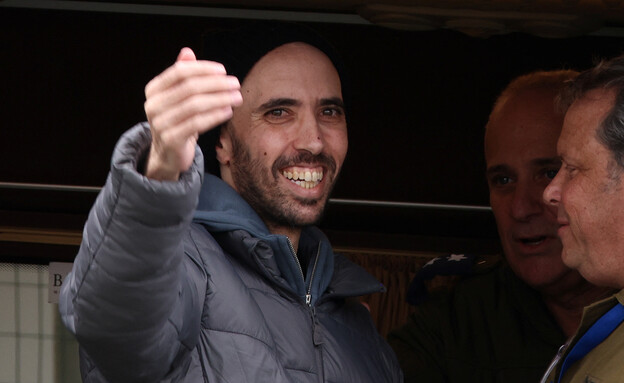 Tal Shoham on his way to the hospital emerging from captivity after 505 days | Photo: Reuters
Tal Shoham on his way to the hospital emerging from captivity after 505 days | Photo: ReutersTal and his family left Kibbutz Be’eri in 2020, partly due to their decision not to raise children under the constant threat of rocket fire, terrorist infiltrations, and tunnels beneath the dining hall. Tal said that despite leaving, he would still visit the kibbutz every few weeks for long weekends.
He described the first moments of the day he and his family were kidnapped: “At six-thirty in the morning, we woke up because my father-in-law, Avshalom Heran z”l, came to the room we were sleeping in on the second floor, banging intensively on the door. We understood that a red alert siren was about to go off. Instinctively, each of us grabbed one of the kids and we ran to the safe room on the lower floor.”
“At some point, we heard gunshots and grenade explosions outside, and my son Naveh was behind me, pressed to the wall,” Tal continued. “He heard the explosion and asked me if we were going to die – I told him I didn’t know, as honestly as I could. In retrospect, I realized I didn’t want to lie to him if that really was going to be our last moment.”
In a choked voice, Tal described the last words his brother-in-law said to him: “Avshalom and I were holding the door. A few moments before, he patted me on the shoulder and said in a cynical tone, ‘It’s been a pleasure.’ Meaning, he already understood in some way that this was about to end.”
Even so, Tal said that at that moment he told himself, “It’s not over until it’s over. I’m going to fight until the very last moment.” At that point, the terrorists began shooting at the safe room window, and Tal understood he had to surrender to save his family.
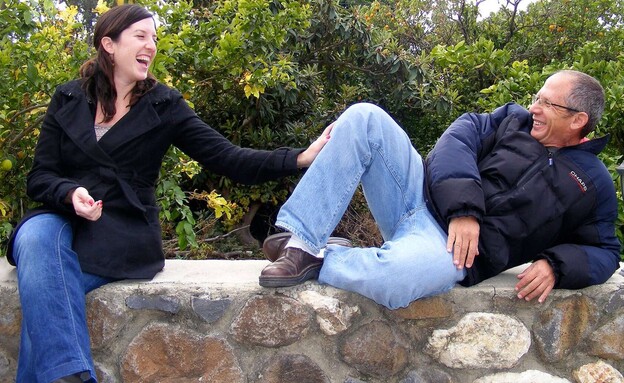 “He patted me on the shoulder and said – it’s been a pleasure,” Avshalom Heran z”l | Photo: Aviv Baron
“He patted me on the shoulder and said – it’s been a pleasure,” Avshalom Heran z”l | Photo: Aviv Baron“I Prepared Myself for the Possibility That My Family Was Murdered, I Held a Ceremony for Them”
“I raised my hands, signaled that we were surrendering. They pulled me out through the window with weapons drawn and aimed at me,” he described. “They took him, and within a few seconds, they threw me into the trunk of a car.”
Tal described the first moments inside Gaza: “At some point, we stopped. A second terrorist arrived and put me on a motorcycle – we set off on what felt like a victory parade.” Tal arrived at the first house where he would be held alone for the first 34 days of captivity. He didn’t know if his family had survived or the scope of the disaster, and he began to process what he had gone through.
“That was the first moment of repetitive thoughts that would accompany me for the next 50 days. I tried in every possible way to understand what had happened to my family – whether they escaped Be’eri alive, whether they were kidnapped,” Tal said.
He added that after 20 days, he decided to accept the possibility that his family had been murdered. “I held a ceremony for them. I sat at night when it was already dark, and the guards couldn’t see that I was crying. I stood in the town we lived in, in front of three graves, with the whole community behind me. There’s a large grave and two small ones beside me, and I eulogized them because I had prepared a whole page for each of them, and I read it aloud.”
Aside from not knowing the fate of his family, the hardest challenges at that stage were loneliness and hunger. “It came down to days with half an orange picked from a tree in the yard, or a small bowl of avocado, or a small bowl of pasta they had cooked,” Tal said.
He described how the hostages experienced IDF bombardments: “The explosions from IDF shelling shook every cell in the body. The body just collapses from exhaustion.” At some point, the terrorists told him that two other hostages would be joining him – 22-year-olds Guy Gilboa Dalal and Evyatar David, with whom Tal formed a brotherly bond.
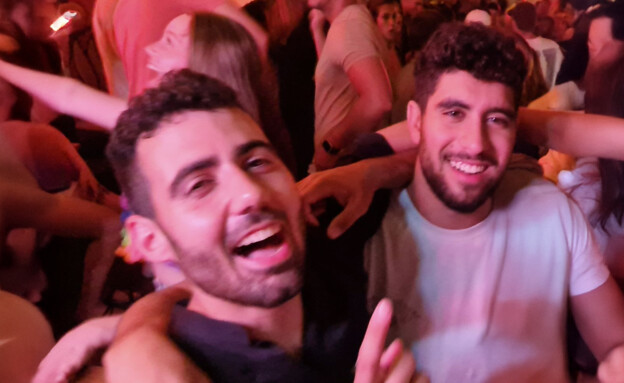 Evyatar David and Guy Gilboa-Dalal | Photo: Private Album
Evyatar David and Guy Gilboa-Dalal | Photo: Private Album“It’s no exaggeration to say we became a family. They truly know me better than my parents or siblings,” Tal said. “I thought that until then I had suffered from malnutrition and harsh conditions, but hearing their stories – both of the kidnapping and of the first weeks – was horrifying.”
Guy and Evyatar were held for two weeks with their legs and hands bound, hands behind their backs, facing the wall, with black sacks over their heads. “Guy told me the thirst was so intense that when he went to the bathroom and no one was looking, he shoved his head into a filthy water barrel used only for flushing – just to drink something,” Tal recounted.
“They’re still there. And I know exactly what they’re going through. I just feel that I owe it to them, at the very least, to share their story and clarify what we went through—and most importantly, what they’re still going through,” Tal said tearfully.
Quote pullout: “It’s no exaggeration to say we became a family. They truly know me better than my parents or siblings.” – Tal Shoham on Evyatar David and Guy Gilboa
Tal said the extreme hunger in Gaza would wake them from sleep and that the three endured psychological torture and sometimes feared they would not survive the night. “I remember that very early on, we had a very heavy fear, almost certainty, that we wouldn’t wake up the next morning,” he said, adding that his captors were preparing for a confrontation with IDF forces. “I withdraw into myself, and they ask me what I’m doing. I tell them – I’m saying goodbye to life. I’m saying goodbye to my family. I want to reach a point where, if this really is the end, I go without regrets and without blame.”
On the 50th day of captivity, Tal received a letter from one of the terrorists. “If you tell anyone about this, I’ll kill you,” he threatened. It was a letter from his wife Adi, written in English, two pages describing that they were kidnapped with her mother, her aunt, and her cousin, and that they were okay. The children were coping with captivity and were about to be released.
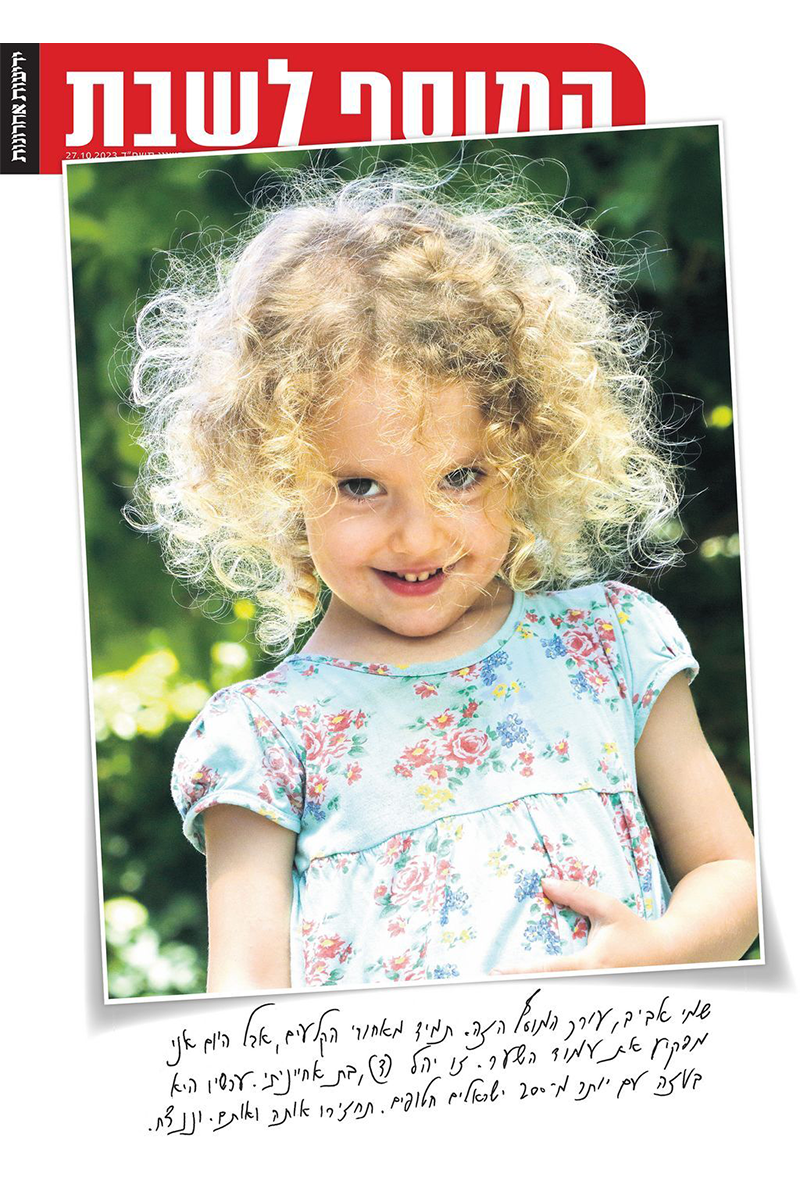 Yahel Shoham on the cover of Yedioth Ahronoth’s Shabbat supplement | Photo: Shabbat supplement, Yedioth Ahronoth
Yahel Shoham on the cover of Yedioth Ahronoth’s Shabbat supplement | Photo: Shabbat supplement, Yedioth Ahronoth“That was a moment when my whole body just relaxed all at once. All the tension,” Tal described the emotional moment. “I was just glowing from within. An indescribable feeling of joy. I went inside, came to Guy and Evyatar, and said, ‘Adi and the kids are alive, and with your permission, I’m going under the blanket to cry now.’ I let out half an hour of bottled-up tears—but tears of joy. I knew that now this was my war – and they wouldn’t break me. That my kids would be able to get their father back.”
One day, while being moved to a different location, he encountered a group of terrorists. One of them shouted, “Who’s Abu Naveh?” Tal was shocked to discover that this was the group that had guarded his family. One gave him a sheet that Naveh had slept on and told him that his daughter Yahel had joked with the terrorists, telling them to say “What?” and then replying, “Potato.”
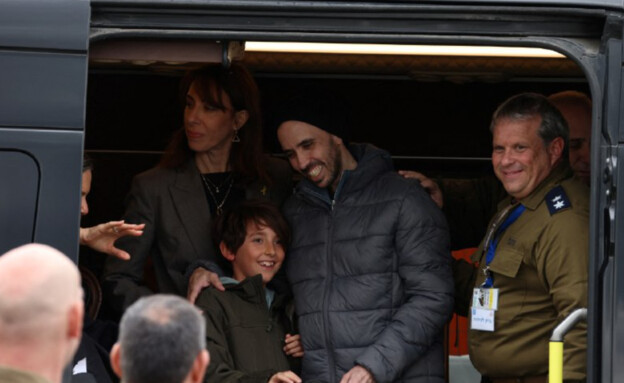 Tal Shoham reunited with his son Naveh after returning from captivity
Tal Shoham reunited with his son Naveh after returning from captivity“I was deeply saddened that I was missing the moments that are so meaningful in the development of my children. Excuse my language – but those sons of bitches who kidnapped us get to experience them in my place,” Tal said in a broken voice.
Even after the release of his wife and children, the terrorists continued their psychological warfare. “They sent her messages threatening to kill me, or that I had already been murdered. Adi received a call from someone speaking Hebrew with a heavy Arabic accent, saying that if she revealed information—they would simply kill me in captivity.”
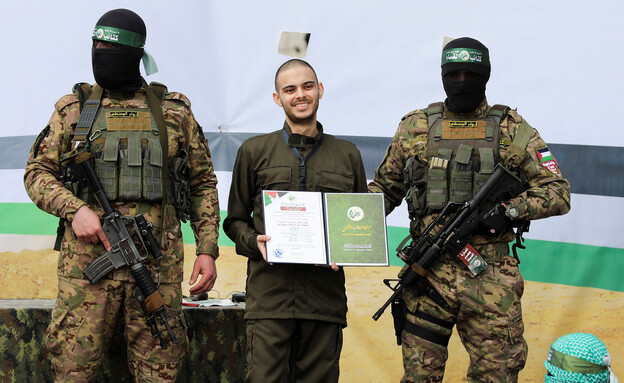 The release of Omer Wankert from Hamas captivity | Photo: Reuters
The release of Omer Wankert from Hamas captivity | Photo: ReutersThe Tunnel with Omer Wankert and the Harsh Conditions
At a certain point, the terrorists led Tal, Evyatar, and Guy to a tunnel where Omer Wankert had been held alone for about six months. It was a tiny tunnel, about a meter wide, with no air, and a pit where they relieved themselves. “There was an explosive device rigged to blow if the IDF tried to rescue us,” Tal said.
The abuse they endured there was unbearable. Tal recounted: “Once, a guard simply lit a fire outside the room and directed the smoke inside. At one point, someone just reached out his hand and said, ‘I need you to hold me, I’m losing it.’ And I told him – ‘Listen, I don’t know if we’ll survive this, but take a deep breath. We can still breathe. It’s not over.’”
Tal said Guy and Evyatar’s mental state deteriorated to the point where they would sleep for very long stretches. “Guy could go a whole week without speaking. There was a sense that he thought he couldn’t survive another day. Evyatar would say, ‘I just don’t see how we can get through another day like this.’ And I would tell them, ‘We have no choice. You must.’”
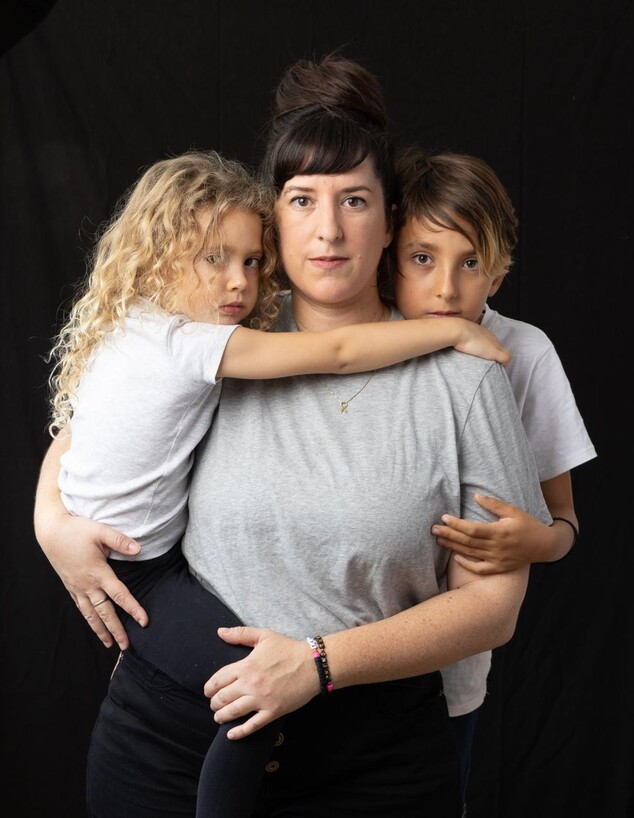 Adi, Yahel, and Naveh Shoham | Photo: Avigail Uzi, Yedioth Ahronoth
Adi, Yahel, and Naveh Shoham | Photo: Avigail Uzi, Yedioth AhronothTal’s nutrition was so poor that he developed scurvy—a severe vitamin C deficiency—according to doctors upon his return. “It used to be called sailor’s disease, where teeth fall out, and the body just starts to break down from the inside.” Tal said that during captivity, the public protests for the release of the hostages gave them strength. “It warmed the heart to know we hadn’t been forgotten,” he said.
Eventually, in January, the deal was signed, and Tal received word that he would be released—but Evyatar and Guy would not. “I get to return to my family, whom I now know are alive, and that this whole nightmare is about to end. But on the other hand – Guy and Evyatar remain there,” he described the mixed feelings. “They won’t have a father figure to comfort them and give them strength.”
He described his first moments outdoors: “They took us outside. To take a deep breath and feel the dew on your skin, it’s just an amazing feeling to be back in the air, with oxygen, with the feeling of clean air after the rain. It’s simply an uplifting experience.”
He described the first moments seeing his young children: “Naveh jumped on me, he was so excited – I’d never seen him like that. Yahel tried to come close but didn’t hug me. Later, I understood that she was afraid of hurting me. I had lost 28 kilos in captivity, so she was very cautious, and it took her three or four days to agree to let me hug her.”
About the longing for the friends still in captivity, Tal said: “I can’t stop thinking about Guy and Evyatar and the hell they’re going through. It’s just an inseparable part of daily life now. Part of reality. We drive somewhere, and Naveh says to me – look, Dad, there’s a sign with Guy or with Evyatar.”
He described what he’ll do when Evyatar and Guy are released: “I’m waiting for our hangout. We said we’d go to the Kinneret, grill some meat, and spend the night. And we were naïve enough to think it would happen this summer – like right now. But we’re not there yet.” link
- Released hostages Sasha Troufanov and Sapir Cohen get engaged
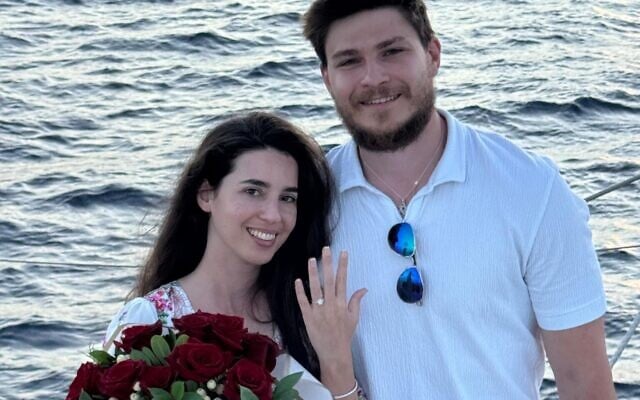
Released hostages Sasha Troufanov and Sapir Cohen are engaged. The pair are seen in a picture posing with Cohen’s ring and a bouquet of red roses.
Cohen and Troufanov were both taken hostage from Kibbutz Nir Oz on October 7, 2023, along with Troufanov’s mother and grandmother. The three women were freed during a November 2023 ceasefire.
Troufanov was released in February after more than 400 days in captivity, where he was held by the Palestinian Islamic Jihad.
After his release Cohen said that Troufanov had told her he’d prayed in captivity that she’d find another man to love, as he believed he would never be coming home.
**There is nothing more important than getting them home! NOTHING!**
“I’ve never met them,But I miss them. I’ve never met them,but I think of them every second. I’ve never met them,but they are my family. BRING THEM HOME NOW!!!”
There is no victory until all of the hostages are home!אין נצחון עד שכל החטופים בבית
Red Alerts - Missile, Rocket, Drone (UAV - unmanned aerial vehicles), and Terror Attacks and Death Announcements
*5:20am - Centeral and Jerusalem areas - Ballistic missile from Yemen- intercepted - no reports of injuries

*2:20pm - Terror Attack - Gush Etzion, West Bank
Man in his 20s critically wounded in Gush Etzion Junction attack, first responders say
A man in his 20s is critically wounded in the terror attack at a shopping complex at the Gush Etzion Junction, Magen David Adom says.
At least two assailants were “neutralized,” according to first responders.
The IDF says it has dispatched troops to the scene.
At least two assailants were “neutralized,” according to first responders.
The IDF says it has dispatched troops to the scene.
The IDF reported that Master Sergeant (res.) Avraham Azulay, 25, from Yitzhar, a combat engineering vehicle operator in the Southern Command’s engineering unit, was killed Wednesday during a Hamas ambush in the Khan Younis area of southern Gaza, the military said.
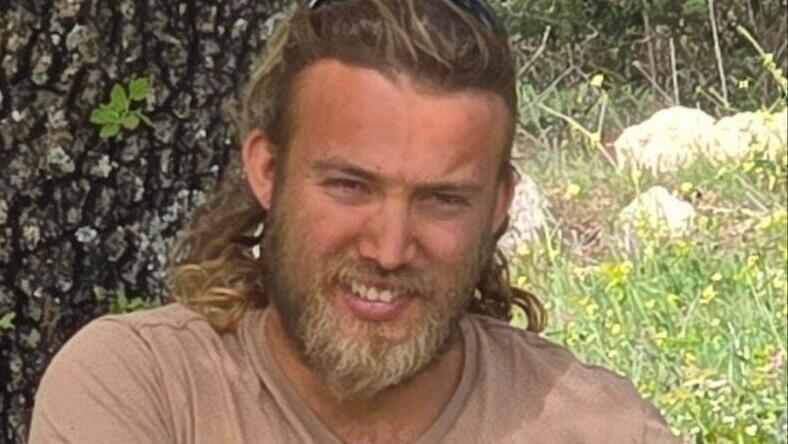
- Senior Israeli official: Our intel shows Iran had not removed enriched uranium from sites targeted by US and Israel. - the article states that this is from an unnamed senior Israeli official, meaning it comes from the Prime Minister's Office. That automatically means that some or all of the information is lies and half truths and the ultimate purpose is to prop up Netanyahu. Everything that comes out of that office, even it is attributed to a name is always suspicious and almost always mixed with lies or complete lies. Therefore, this statement that the unnamed official states that it is based on Israeli intelligence is entirely suspect and is in keeping with Netanyahu's line that we caused enough damage to set the Iranian nuclear program back years and not months or even a single year. Netanyahu knows very well that if our 12 day war with Iran only had an impact for such a short time, too many people would question if it was worth it. That defeats his PR campaign of his being a hero against the Iranian threat.
IDF says it has expanded ground assult against Hamas in Gaza’s Beit Hanoun
The military says it has expanded its ground offensive against Hamas in northern Gaza’s Beit Hanoun.
Troops of the Givati Brigade joined forces of the 99th Division in efforts to surround Beit Hanoun, where the military estimates dozens of Hamas operatives are holed up in tunnels.
“The forces are operating to destroy terror infrastructure, eliminate terrorists and destroy Hamas’s military capabilities in the area,” the IDF says.
In an ambush earlier this week, five IDF soldiers were killed and 14 were wounded in Beit Hanoun.
Palestinian media reports 13 killed, mostly women and children, in strike in central Gaza Strip
Media outlets in Gaza report that 13 people were killed, including 8 women and children, in an Israeli strike in Deir al-Balah, in central Gaza.
According to the Al-Rad channel, some of the casualties had been on their way to receive treatment at a nearby medical center when the strike was launched.
Footage published by Gaza media shows the apparent moment of the strike, as several people walking past a shed are suddenly obscured in a thick cloud of smoke.
The footage could not be independently verified.
IDF says central Gaza airstrike, said to have killed 13 people, targeted Hamas terrorist who took part in Oct. 7 assault
An Israeli airstrike in central Gaza’s Deir al-Balah earlier today targeted a Hamas terrorist who invaded Israel during the October 7 onslaught, the military says.
Earlier, Palestinian media reported that 13 people were killed, including 8 women and children, in the strike.
The IDF says it is “aware of the claim about casualties in the area,” adding that the incident is being investigated.
“The IDF regrets any harm to uninvolved [civilians] and acts as much as possible to minimize harm to them,” the military says in response to a query.
- Qatar will be able to start funding Gaza reconstruction efforts during ceasefire
The terms of the ceasefire and hostage release deal currently being negotiated in Doha would allow Qatar to start funding the reconstruction of the Gaza Strip once a truce comes into effect, according to an unsourced report from the Ynet news outlet.
According to the report, Hamas put forward this demand, and Israel has agreed to it in principle.
Several other countries would also start pouring funds into Gaza for reconstruction efforts under the terms of the deal, the report states, although it does not specify which ones. link This is a very unlikely situation. While it is very clear that Qatar and other Gulf States will finance the rebuilding of Gaza, they have made it very clear that not a single dollar will enter Gaza for the purpose of rebuilding until the war is over, Hamas is no longer in control and an alternative governing body is in place. They know very well that if Hamas is still governing the Strip, any money that they invest and any reconstruction that is done will only be temporary until the next war or major IDF operation. This is what has happened throughout the years and they now refuse to invest in something they consider temporary. While it is possible that they may put money into clearing the massive rubble of our bombing and perhaps rebuilding some of the hospitals, but it will not be any more that than. They are tired of putting good money after bad, even Qatar which has been the strongest sponsor of Hamas all these years.
Israel, EU strike deal to significantly expand humanitarian aid deliveries to Gaza — report
As efforts intensify to reach a ceasefire and hostage release deal in Gaza this week, Israel and the European Union have reached an agreement to significantly expand the flow of humanitarian aid into the war-torn Strip, with an increase in daily supplies expected in the coming days, Bloomberg reports.EU foreign policy chief Kaja Kallas brokered the deal, which will also enable the reopening of several aid corridors, including humanitarian routes through Egypt and Jordan, and several other crossing points in northern and southern Gaza, the report says, citing an anonymous source familiar with the matter.
Bakeries and public kitchens in Gaza will also resume operations, while fuel deliveries for humanitarian facilities are expected to restart, the report adds.
Spokespeople for the Israeli government and the European Commission did not immediately respond to a request for comment, according to Bloomberg.
Foreign Minister Gideon Sa’ar has made multiple comments in recent weeks that Israel is working with European Union counterparts to improve the system for distributing aid. The current mechanism is run by the Israel- and United States-backed Gaza Humanitarian Foundation, whose operations have been strongly criticized by the international community.
The Bloomberg report does not clarify under which bodies the expanded aid efforts would be operated.
Over 180 targets struck by Israeli Air Force in Gaza over past day, IDF says
Over 180 targets were struck by the Israeli Air Force in the Gaza Strip over the past day, including operatives, booby-trapped buildings, weapon depots, anti-tank launch posts, tunnels, and other infrastructure, the military says in a daily update.
The strikes come as five IDF divisions, made up of tens of thousands of troops, continue to operate across Gaza.
In northern Gaza, the IDF says troops of the 401st Armored Brigade located several weapons and tunnel shafts used by Hamas. The troops also located a cell of Hamas operatives in a building and directed a drone strike against them, according to the IDF.
Similarly, the military says troops of the elite Multi-Domain Unit spotted a cell of Islamic Jihad operatives in a building and called in a drone strike.
IDF says troops in Khan Younis destroyed 500-meter-long Hamas tunnel
Dozens of enemy operatives were killed and over 130 “terror infrastructures,” both above and below ground, were demolished by troops of the Golani Brigade during operations in southern Gaza’s Khan Younis in the past week, the military says.
Among the sites was a 500-meter-long, 13-meter-deep Hamas tunnel, the military says. It was destroyed by the elite Yahalom combat engineering unit.
Other sites included caches of weapons, booby-trapped buildings, observation posts, and mortar launching positions, the military says. video
- Syrian activist tells Knesset Sharaa told him chance for Israel ties is ‘unique opportunity’
Against the backdrop of Prime Minister Benjamin Netanyahu’s visit to Washington and public optimism about potentially expanding the Abraham Accords normalization agreements, a Syrian activist and a Saudi Arabian journalist make a rare visit to the Knesset to speak at the inaugural conference of a parliamentary lobby aimed at advancing a regional security arrangement.
Earlier today, Syrian businessman and political activist Shadi Martini and Saudi journalist Abdalaziz Alkhamis attended a caucus of the Lobby for Advancing a Regional Security Arrangement, which was jointly founded by opposition MKs Ram Ben Barak, Gilad Kariv, and Alon Schuster.
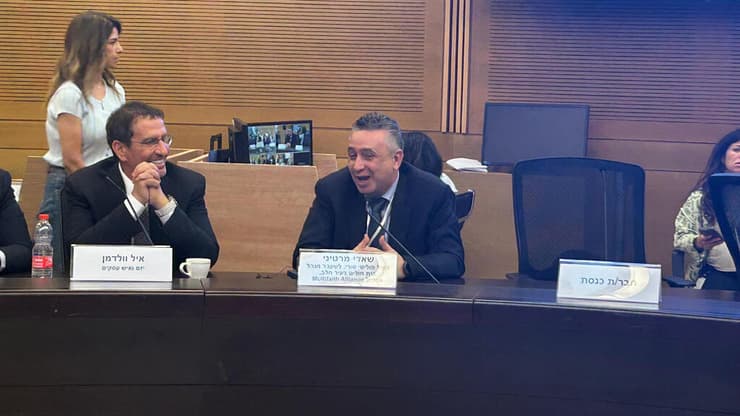
Shadi Martini, Syrian Political Activist in the Knesset "It's difficult to reach trust and easy to lose it"
Speaking about new opportunities for cooperation between Israel and the new Syrian government, Martini — who fled Syria during its civil war in 2012 — told lawmakers at the conference that he had an “interesting meeting” with interim Syrian President Ahmed al-Sharaa about two weeks ago.“I was with two other colleagues, one is a priest, and one is a rabbi… We entered the presidential palace in Damascus. I really appreciated that meeting. It went on for two hours, and the topic of Israel was dominant,” he said.
“One thing that stuck with me that President al-Sharaa said was: ‘We only have these opportunities one time every 100 years, it’s a very unique opportunity — but the window will not always stay open.'”
Addressing the prospect of Saudi-Israel normalization, Alkhamis said, “From the Saudi lens” the fate of Palestinians in Gaza “lies [at] the heart of the matter.”
“No state can expect to be impressed when our people next door are encaged and disenfranchised. Normalization from Saudi Arabia’s perspective is not merely a dual agreement, but a regional realignment, and such realignment must include a credible and real path to Palestinian sovereignty.”
“From Riyadh to Abu Dhabi, the lesson is not about who won the battle, but what comes after,” he said.
Also speaking at the conference, Opposition Leader Yair Lapid said that if Sharaa were to take demands for the Golan Heights off the table in a potential peace agreement, he intends for Israel to lead a regional effort to rebuild his country.
“I told the Emiratis in Abu Dhabi: We will know how to build a complete regional coalition around [Sharaa] that will assist in the reconstruction of Syria if he takes the Golan Heights issue out of the equation,” Lapid declared.
Last week, Foreign Minister Gideon Sa’ar said that Israel is interested in expanding “the circle of peace,” including with Syria and Lebanon, adding that the Golan Heights “will remain part of Israel” under any future peace agreement.
IDF says troops raided, destroyed several Hezbollah sites in south Lebanon
The Israeli military carried out several raids in southern Lebanon recently, locating and destroying Hezbollah weapon depots and other infrastructure, the IDF says.
In one of the special operations in the Jabal Blat area, soldiers of the 300th “Baram” Regional Brigade located a Hezbollah compound that included a weapons depot and firing positions. The military says the troops demolished the site.
In another raid, the IDF says reservists of the Oded Brigade located weapons hidden in a forested area near Labbouneh, including a multiple rocket launcher, a machine gun, and dozens of explosive devices. The weapons were also destroyed.
In the same area, the soldiers also located an underground site used by Hezbollah to store weapons, and it was demolished by combat engineers, the IDF says.
Since a November 2024 ceasefire, the IDF has remained deployed to five strategic posts inside southern Lebanon. Israeli airstrikes against Hezbollah violations of the ceasefire have been frequent, but IDF ground operations beyond the areas of the five posts have been much rarer. video
IDF says it struck Hezbollah military compound in southern Lebanon overnight
The IDF says it struck a Hezbollah military compound in southern Lebanon’s Yohmor last night.
“The headquarters operated under the guise of a civilian structure, with the Hezbollah terror organization exploiting the civilian population to advance terror activities against the State of Israel,” the military says in a statement, adding that this “constitutes a blatant violation of the understandings between Israel and Lebanon.”
The IDF says it took measures to mitigate civilian harm in the strike.
Gaza and the South

Displaced Palestinians rally in Tulkarem against IDF home demolitions
More than a hundred Palestinians displaced from refugee camps by an ongoing Israeli military operation in the West Bank gather in the city of Tulkarem to protest the army’s recent home demolitions.
The two refugee camps adjacent to the northern city have seen dozens of residential buildings torn down by Israel’s military in recent months, with more slated for destruction in the coming weeks.
Israel says its months-long operation in the territory’s north is aimed at cracking down on several camps that are strongholds of Palestinian terror groups fighting against Israel.
“Today is a clear message from the community inside the camps demanding their right — the right to return to the camp and to stop the assault on the camps, the destruction of homes,” says Nihaya al-Jundi, a displaced woman from Tulkarem camp who took part in the protest.
Demonstrators also demand support from Palestinian authorities and the UN’s agency for Palestinian refugees, UNRWA, which has historically provided health, education and other services to camp residents.
Israel says UNRWA has been infiltrated by terror groups, and that its schools indoctrinate students with violent anti-Israel and antisemitic material.
Women and children from the Tulkarem camp hold signs calling for an end to the demolitions and for housing allowances to support the displaced.
“The protest was about demanding legitimate rights — human rights, social rights — such as continuous relief aid, housing, medical treatment, and medicine, and for UNRWA and the Palestinian government to ensure the provision of humanitarian aid,” Faisal Salama, head of Tulkarem camp’s popular committee, tells AFP.
Um Moataz Abu Shala, a displaced woman from Nur Shams, Tulkarem’s other refugee camp, says she first and foremost wanted to return home.
“We don’t want food aid, donations, caravans, or any handouts. We want to return to our land in Nur Shams,” she tells AFP.- IDF soldier stabbed, moderately hurt during operation in West Bank village of RummanahAn IDF soldier was stabbed by a Palestinian during operations in the West Bank village of Rummanah, near Jenin, the military says.
The military says the assailant was shot dead by the troops following the attack.
The soldier was taken to a hospital in moderate condition. - Police launch new West Bank unit of settler volunteers with focus on ‘combative mindset’. It's not enough that the convicted criminal Ben Gvir has instructed the police not to do anything against the Jewish terrorists who perpetrate acts of terror, including murder on Palestinians, he has now set up a volunteer militia with police uniforms and weapons to 'provide immediate response to terror attacks'. The rhetorical question is what happens when it will be them committing the terror attacks against Palestinians.
In the words of the criminal minister about these volunteers “These squads represent a departure from the ‘defensive mindset’ and towards a combative, militant and offensive mindset,” says the far-right minister, who himself resides in Kiryat Arba. What more needs to be said?
- Politics and the War and General News
Commander of Tank Seriously Wounded, Father: “Money Goes to Rabbis, Soldiers Left Without IED-Detection Tools”
Four were injured in the explosive device incident in Khan Younis, in which Corporal Assaf Zamir z”l was killed. Among them was S., the tank commander seriously wounded, hospitalized at Sheba Medical Center at Tel Hashomer. His father, Ilan Green, a founding member of the band “Revenge of the Tractor,” sharply criticized the government in an interview with ynet:
“The cynicism and evil, the cruelty of this government—it’s unbelievable. Families are destroyed, people are dying.”
S.’s family has not left his bedside and this week marked his 21st birthday.
“We managed to retrieve his playlist from his destroyed phone. They say sounds heal,” said his father.
Last Friday, Corporal Assaf Zamir (19) z”l fell and four soldiers were seriously injured by a device planted by terrorists under the tank in which the crew was operating in Khan Younis. Among the wounded was S., the tank commander, suffering burns and shrapnel wounds across his face and body, now hospitalized in Sheba’s burn unit.
“It turns out there are all sorts of IED-detection tools that soldiers and commanders in the field request, and nothing is done. They send them again and again on missions that have no hope,” his father, Ilan Green, told ynet on Wednesday.
“And what happened with the APC two weeks ago (the disaster that killed seven soldiers)—this also happened in 2014 with that same APC. What, no money? No budget? There are funds for hundreds more rabbi positions? This distortion is so total it cannot be explained.”S., 21, is hospitalized in the burn unit with his family by his side. Ilan, co-founder of “Revenge of the Tractor,” says:
“I don't wish this on anyone. On Friday at 08:15, we received a call from him—he spoke with me and his mother and said he was injured and hospitalized in Sheba. Within 20 minutes we were here. When we arrived we saw him, spoke with him for a few minutes before they sedated him. He was conscious, clear, he laughed, he cried. He understood what was happening—which is a good sign.”
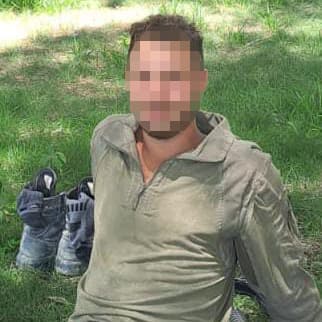
“He was conscious, clear, he laughed, he cried.”
Caption: S. was seriously injured by an IED blast in the Gaza Strip. Are soldiers not receiving IED detection tools due to budget considerations? (Photo: Private Album)The Green family is now fully focused on S.’s recovery. But his father points a finger at the government and its leader:
“Of course there's immense anger, this shouldn’t have happened—so many die every day, and this hasn’t been acceptable for a long time. We understand what's happening and that our children are being sacrificed to preserve Bibi's government—this is crystal clear to us. The cynicism, evil, cruelty of this government—it's unbelievable. Families are destroyed, people die.”
“My son told me himself he's conquering Jabalia for the fourth time,” he adds.
“They're sitting and celebrating in Washington while here five soldiers are killed. It's unbelievable we're living this absurdity to preserve this government. From week one of the war it was already clear this is what would happen.”
He emphasizes:
“We are extremely proud of our children who enlisted. My wife and I consider serving in the IDF both an obligation and an honor—but we simply oppose this cynical exploitation of them, taking the kids and their wonderful motivation and turning it into a political tool.”“He escaped from the tank himself”
The day before yesterday, while sedated and intubated, S. celebrated his 21st birthday.
“We stood around his bed and sang ‘Happy Birthday.’ We said we’d wait and celebrate properly when he woke. My own birthday was the day before. The fact that he's with us is the greatest gift I’ve ever received. There was so much luck that he's still with us.”
According to the father, following his severe injuries, doctors decided to induce sedation as a precaution.
“With many burns, swelling develops in the respiratory tract, so they sedated him and are waiting for the swelling to subside so he can breathe on his own,” he explains.
“They keep telling us his condition is improving all the time. It's a very slow improvement, but there is improvement. They reassure us constantly in the unit, and we’re monitoring him closely—we basically live in Sheba and are here all the time.”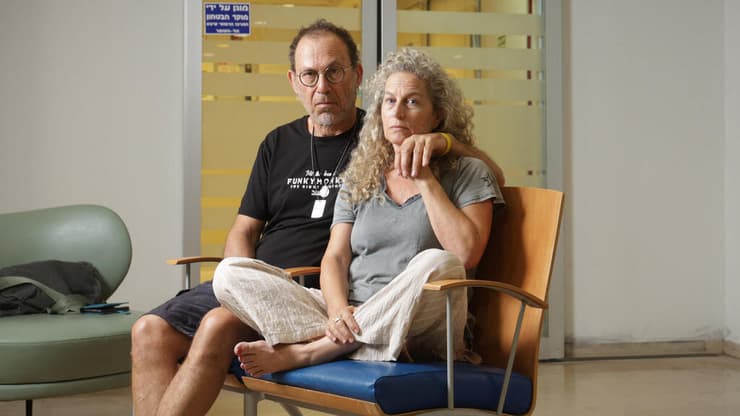 Parents of S. Severely Wounded—Kim and Ilan Green
Parents of S. Severely Wounded—Kim and Ilan Green
Caption: “His being with us is the greatest gift I’ve ever received.” Parents of the severely wounded S., Kim and Ilan Green (Photo: Avigail Uzi)S. has a twin brother serving in regular service, and an older sister.
“He is a tank commander in the armored corps, a wonderful kid, plays guitar, completed a year of pre-military program and then enlisted with lots of motivation and desire to serve,” his father says. He added that after finishing training, he became a tank commander and since then has been fighting for many months in Gaza and Lebanon.
“He's been in the army about a year and a half, most of it in combat.”The father adds they still haven’t received all details of the incident.
“From what we understand, the device was attached to the tank, those devices again, but we're missing details and waiting to hear everything from him when he wakes. We know he managed to extract himself from the tank, reach the evacuation vehicle, and from there was airlifted by helicopter to Sheba. Everything happened very fast. The event was at 07:00 a.m., and by 08:15 we got the call that he was in the hospital.”
“Playing His Playlist for Him”
The father explains that since Friday, the entire family has been around S.
“We go into his room and play music. We managed to get his playlist from his destroyed phone and play the songs he likes. It plays in his room most of the day, quietly. He loves music and also plays himself. The staff in the unit also appreciate that—having music around, talking to him, because maybe something registers. The staff are pleased with it overall.”
“They say sounds are healing.”
He adds:
“I plan at some point to bring a guitar and sit and play for him, we used to do that a lot at home.”“He Pulled Himself Out of the Tank”
In that same incident where S. was wounded, Corporal Assaf Zamir (19) from Dimona was killed.
“The whole tank crew was very young, people who had just finished training two weeks ago,” Green says. He notes that S. is still unaware that Assaf was killed.
“Before they sedated him he kept asking, but we didn’t know yet. It’s something he’ll have to deal with when he wakes, that his comrade was killed.”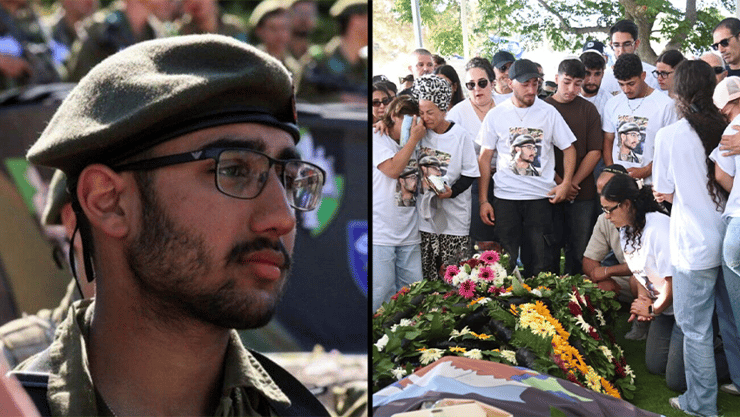 Funeral of Fallen Sgt. Assaf Zamir z”l at the Dimona military cemetery
Funeral of Fallen Sgt. Assaf Zamir z”l at the Dimona military cemetery
Caption: “It’s something he’ll have to deal with when he wakes, that his comrade was killed.” Funeral of Sgt. Assaf Zamir z”l at the Dimona military cemetery (Photo: Hertzel Yosef, IDF Spokesperson)Green adds that the war doesn’t spare any generation, sharing that S.’s great-grandfather, Yisrael Buchman, was killed in an airstrike on Tel Aviv by the Italian Air Force in World War II.
“It’s something that goes through our family. He had a grocery store and was killed there. I fought in the first Lebanon War. This is already four generations fighting the same war.”
S.’s uncle, Yisrael Ganor, posted on social media a call for public prayers for his recovery.
“It’s very moving to see all the responses, so many shares,” the father says. “It really touches me—I understand the wish and where it comes from. People hear so much death, so when someone survives and is still alive, everyone wants to cling to life. On the one hand it’s joyous and moving, on the other it’s sad that this is all we’re left with—to fight for someone’s life who somehow survived it.”
The father wished to express special thanks “to the wonderful staff of the burn unit at Sheba, among the best in the world in their field, for their dedication, professionalism, and big hearts that give us confidence and optimism in this difficult time.”
He believes in his son’s strength—“We’re sure he’ll pull through, and we are a strong family and will cope with this, and I hope the country will too.” link
- Soldiers injuring themselves to secure leave from fighting, mothers tell Supreme Court
Mother Awake, NGO representing mothers of frontline soldiers, says in petition that Directive 77—extending mandatory combat service by four months—is pushing their sons and daughters to physical and mental extremes
Adv. Batya Kahana-Dror submitted a petition to Israel’s High Court last week on behalf of Mother Awake, an NGO advocating responsible war management on behalf of mothers of soldiers on the front lines, challenging Directive 77—a military order that extends mandatory combat service by four months. Justice Alex Stein instructed the defense minister, IDF chief of staff, head of the Manpower Directorate, and attorney general to file a response by July 30.In April, due to a critical shortage in combat personnel, the Manpower Directorate formalized Directive 77. Under the order, all active-duty combat soldiers are required to serve four additional months under an open-ended emergency call-up (Tzav 8), receiving their release only after completing a full three years.“As mothers, we no longer trust our leaders and commanders. We want righteousness, not promises,” said Kahana-Dror, one of the leaders of Mother Awake.A resident of Moshav Netzarim, Kahana-Dror identifies as a religious Zionist from the political right. She is the mother of four—two currently in the reserves, and one recently discharged from active service. “The soldiers are depleted. Many broke down when they heard about the extension,” she said. “We’ve received dozens of messages from mothers and soldiers across field units. Some report units are falling apart. Others say soldiers are deliberately injuring themselves just to get some rest—yet even then, they’re ordered back, threatened with jail time. The law deliberately prohibits reserve duty during the first year after mandatory service. The legislature recognized the human need for recovery.” The petition also points to the advancing draft exemption bill. “They know that a whole sector of society is being handed exemption. Our sons give and serve and don't quit—and then they’re trampled. This isn’t just unfair. It’s inhumane,” she said. The petition includes testimony from five combat soldiers, both in active duty and reserve. “They fought in Gaza, risked their lives, lost friends,” said Kahana-Dror. “They aren’t asking for pity. They just want to be seen—for the love of country that drives them to give everything.” One combatant due for release this August wrote: “We risk our lives every day. We give everything. And now they want to keep us in, even when we’re already beyond exhausted… It crushes morale. It’s breaking my team.” Another soldier expecting to leave service in August said: “We want them to see the fighters’ side. The ones who wake up every morning and give everything, who execute every mission, and who still want to serve and defend the state at any time, at any cost. But we’re drained. We feel exploited. The operational pressure has hollowed us out.” A third petitioner, due for release at the end of the year under Directive 77, wrote: “People have been fighting for over a year and a half without a break. We’ve served, sacrificed, given ourselves for life—and now they’re still trying to squeeze more from us. My friends and I will do what’s needed. But the least we should get is decent pay, proper equipment, and fair leave.” A fourth soldier, also scheduled for discharge this August, shared: “They told us we’re continuing for four more months—just like that. No documents, no explanation. I had plans to work, to process the war properly, to begin my actual life.” The fifth testimony came from a recently discharged soldier who served two years and eight months, including six months in combat in Gaza. Before his release, he made repeated attempts not to continue serving in the same role under the extension. He described the additional 120 days as a severe breach of trust with the military. After his final discharge, he entered the reserve pool—but had to forfeit post-service benefits, including his right to a standard release vacation. link - Report finds Netanyahu hasn’t met with families of the 62 soldiers killed in Gaza war since start of 2025
Prime Minister Benjamin Netanyahu has not met with any of the families of the 62 soldiers who have been killed since the start of the year in the ongoing war in Gaza, the Haaretz daily reports, citing information that it received from the Prime Minister’s Office after a freedom of information request.
While Netanyahu has met the families of killed hostages in the first months of this year a few times, he has only paid condolence visits to two families who lost soldiers in previous wars and whose bodies were recovered this year — Zvi Feldman, who had been missing since the First Lebanon War, and Oron Shaul, who was killed in the 2014 Operation Protective Edge in Gaza, the report says.
Up until July 8, Netanyahu has met with freed captives and relatives of hostages 50 times and held phone calls with them 36 times throughout the entire war — including six meetings organized by the right-wing Gvura and Tikva forums, according to Haaretz. link This should not surprise anyone. Like everything else Netanyahu does publicly, it has to have positive PR for him, otherwise it is rare that he will do it. Netanyahu has never had a strategy for anything dealing with the country and definitely not about the war. The only thing he truly has strategy for is his personal political position, future and legacy. For that, he has the best well oiled machine that works for him in the Prime Minister's Office. If he devoted even 1% of the efforts of his political machine for the benefit of the country, the soldiers, the hostages, the country would be in much better shape. But if it doesn't benefit him directly, it doesn't happen.
- The Region and the World
- Houthis claim responsibility for deadly attack sinking merchant ship
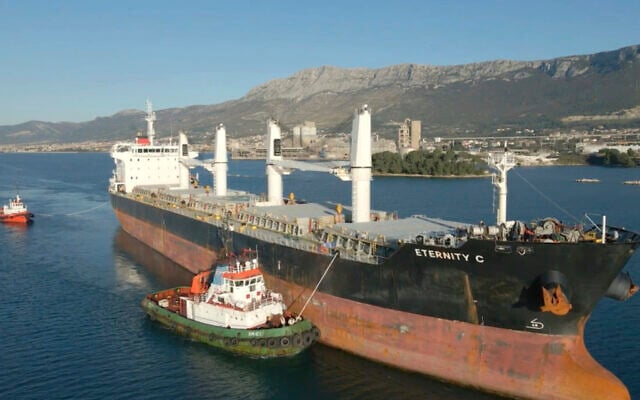
Yemen’s Iran-backed Houthis claim responsibility for a deadly attack earlier this week that sank a merchant vessel — the second ship to be hit in less than 24 hours as the rebels resume their campaign in the key waterway.
“The naval force of the Yemeni Armed Forces targeted the ship (ETERNITY C),” Houthi military spokesman Yahya Saree says, claiming solidarity with Palestinians in Gaza and saying the vessel was headed towards Eilat in Israel.
In his short life, Nadav Tayeb, a 17-year-old from Moshav Beit Shikma in the Hof Ashkelon Regional Council, built a small, heartfelt woodworking business. After he was murdered on October 7 by Hamas terrorists at Zikim Beach, his brother Dor, 23, chose to carry on his work, immortalizing Nadav through the enterprise he named “Nadav’s Tree of Life.”
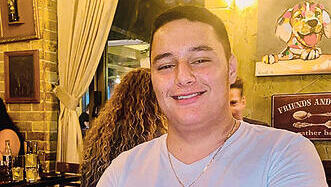
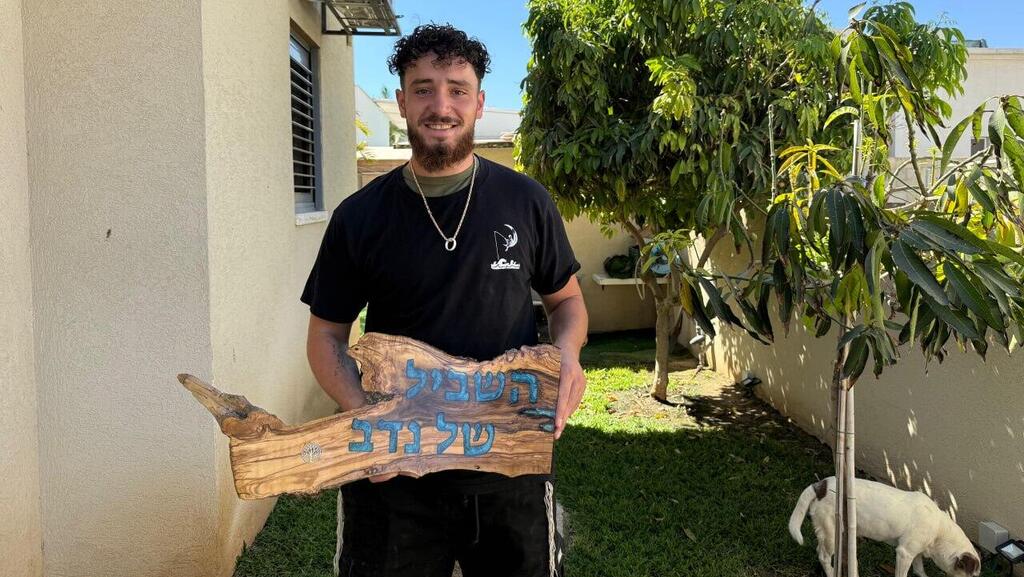
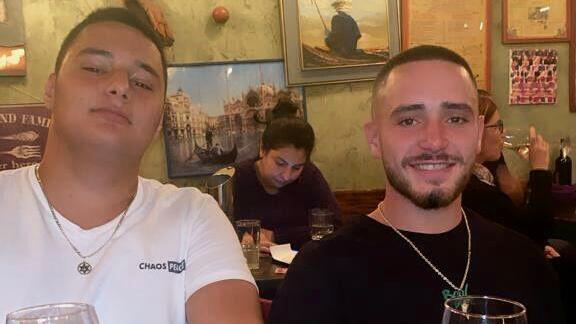
Acronyms and Glossary
ICC - International Criminal Court in the Hague
IJC - International Court of Justice in the Hague
MDA - Magen David Adom - Israel Ambulance Corp
PA - Palestinian Authority - President Mahmud Abbas, aka Abu Mazen
PMO- Prime Minister's Office
UAV - Unmanned Aerial vehicle, Drone. Could be used for surveillance and reconnaissance, or be weaponized with missiles or contain explosives for 'suicide' explosion mission
Join my Whatsapp update group https://chat.whatsapp.com/IQ3OtwE6ydxBeBAxWNziB0
Twitter - @LonnyB58 Bluesky - @lonny-b.bsky.social
My blogs in The Times of Israel my blogs
Substack - https://lonnyb.substack.com/
Twitter - @LonnyB58
My blogs in The Times of Israel my blogs
Substack - https://lonnyb.substack.com/

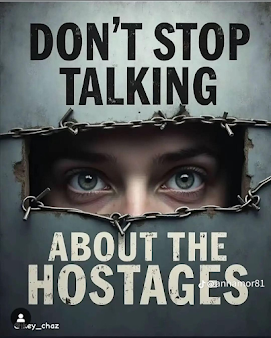




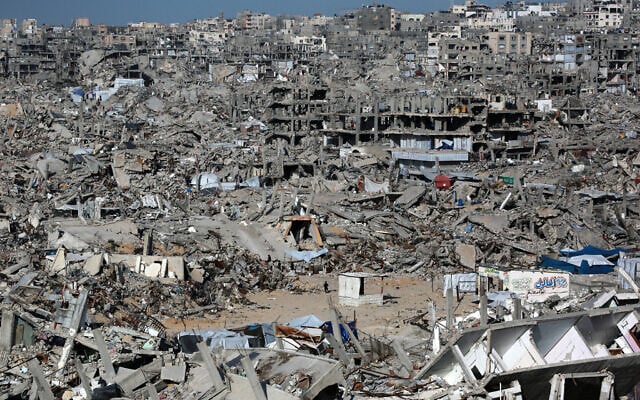



Comments
Post a Comment